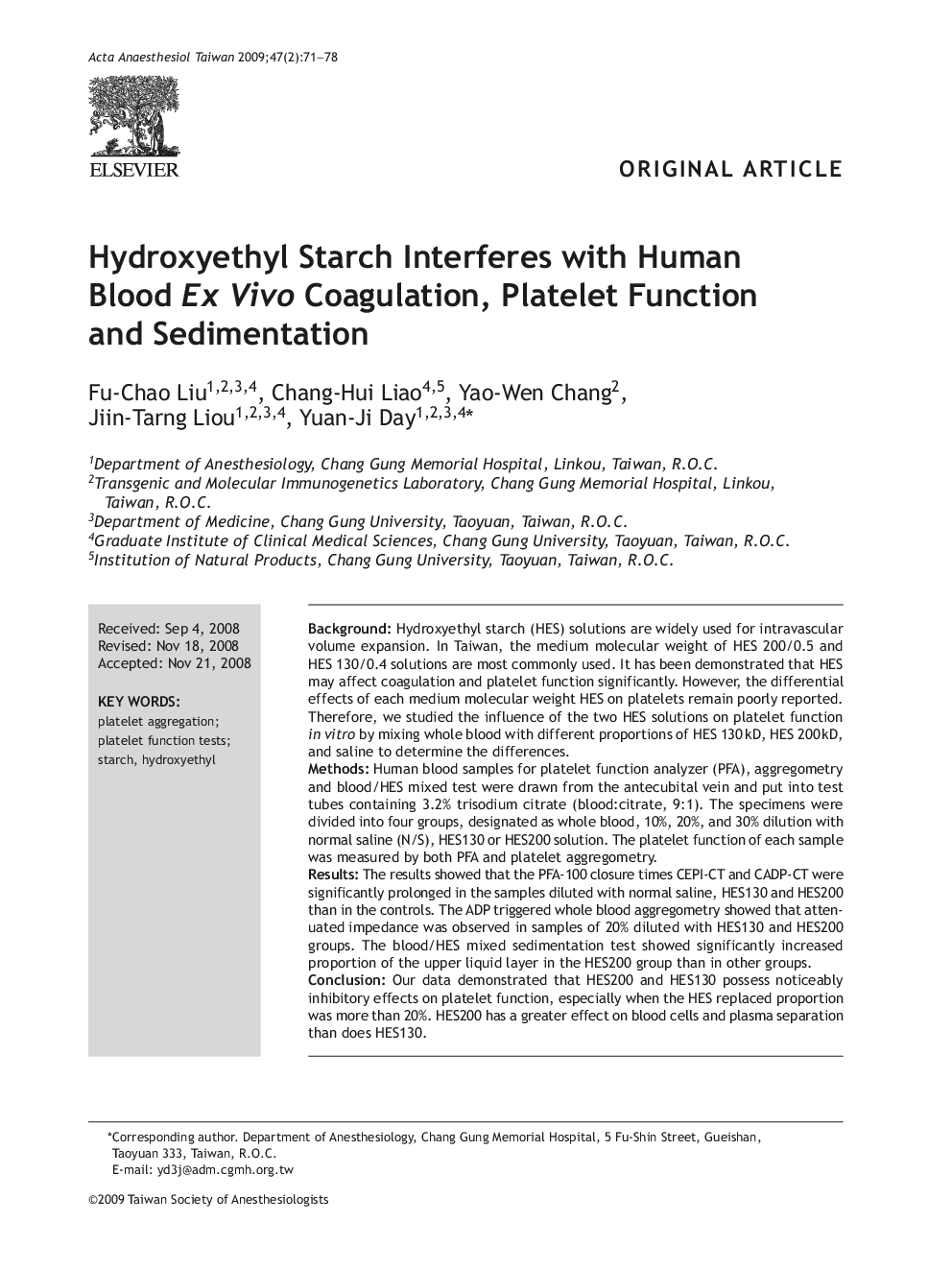| Article ID | Journal | Published Year | Pages | File Type |
|---|---|---|---|---|
| 2741603 | Acta Anaesthesiologica Taiwanica | 2009 | 8 Pages |
BackgroundHydroxyethyl starch (HES) solutions are widely used for intravascular volume expansion. In Taiwan, the medium molecular weight of HES 200/0.5 and HES 130/0.4 solutions are most commonly used. It has been demonstrated that HES may affect coagulation and platelet function significantly. However, the differential effects of each medium molecular weight HES on platelets remain poorly reported. Therefore, we studied the influence of the two HES solutions on platelet function in vitro by mixing whole blood with different proportions of HES 130 kD, HES 200 kD, and saline to determine the differences.MethodsHuman blood samples for platelet function analyzer (PFA), aggregometry and blood/HES mixed test were drawn from the antecubital vein and put into test tubes containing 3.2% trisodium citrate (blood:citrate, 9:1). The specimens were divided into four groups, designated as whole blood, 10%, 20%, and 30% dilution with normal saline (N/S), HES130 or HES200 solution. The platelet function of each sample was measured by both PFA and platelet aggregometry.ResultsThe results showed that the PFA-100 closure times CEPI-CT and CADP-CT were significantly prolonged in the samples diluted with normal saline, HES130 and HES200 than in the controls. The ADP triggered whole blood aggregometry showed that attenuated impedance was observed in samples of 20% diluted with HES130 and HES200 groups. The blood/HES mixed sedimentation test showed significantly increased proportion of the upper liquid layer in the HES200 group than in other groups.ConclusionOur data demonstrated that HES200 and HES130 possess noticeably inhibitory effects on platelet function, especially when the HES replaced proportion was more than 20%. HES200 has a greater effect on blood cells and plasma separation than does HES130.
